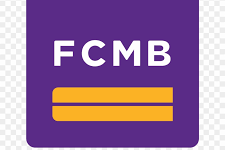MANAGING DEBT WISELY
How to Use a Personal Loan Without Falling Into a Debt Trap
LOANS
Fabian Agore
10/14/20252 min read


In Nigeria today, many people turn to personal loans to meet urgent needs—whether it’s paying school fees, funding a small business, or covering medical bills. With fintech platforms and banks making credit more accessible than ever, borrowing money has become easier. But easy access can be dangerous if not handled wisely. A personal loan can help you breathe easier or drag you deeper into financial stress—it all depends on how you manage it.
1. Borrow for the Right Reasons
The first step is knowing why you’re borrowing. A personal loan should solve a real financial problem or create value. Using it to consolidate high-interest debts, fix your car, or boost a side hustle makes sense. But borrowing for luxury items, aso ebi, vacations, or impulse purchases is a trap waiting to happen. Only take a loan that will either save you money or help you earn more.
2. Know the Real Cost of the Loan
Many Nigerians focus only on the monthly repayment, not realizing that interest rates, insurance fees, and late payment charges can make the loan much more expensive. Before taking any loan, use the lender’s repayment calculator or ask them to break down the total amount you’ll repay. Compare offers from different lenders—banks, microfinance institutions, and loan apps—and choose the one with the most transparent terms. Remember, a lower interest rate isn’t always the cheapest if hidden fees are involved.
3. Borrow Only What You Need
Don’t take a ₦1 million loan just because you qualify for it when you only need ₦500,000. Borrowing more than necessary increases your repayment burden and can strain your monthly budget. Calculate what you truly need and stick to that. Discipline here saves you stress later.
4. Keep Repayment Within Reach
Ideally, your total monthly debt payments shouldn’t exceed 30–40% of your income. If you earn ₦300,000 monthly, your total debt repayment should stay around ₦90,000–₦120,000. Anything beyond that risks putting your finances under pressure. Set up automatic transfers or reminders to avoid missing due dates—because defaulting can hurt your credit score with credit bureaus like CRC Credit Bureau or FirstCentral, making it harder to borrow in the future.
5. Avoid Multiple Loans
Many people fall into trouble by taking one loan to pay another. This is the start of a debt spiral. If you already have a loan, focus on clearing it before taking another. If you find it hard to keep up, contact your lender early to discuss restructuring options instead of running from calls or defaulting.
6. Build an Emergency Fund
Emergencies happen—illness, job loss, or sudden expenses. Having an emergency fund of at least three to six months’ expenses gives you a safety net. It prevents panic borrowing and helps you stay consistent with repayments even when life happens.
Bottom line: In Nigeria’s unpredictable economy, borrowing smart is part of financial survival. A personal loan can be a helpful bridge, but only if used wisely. Borrow with intention, spend with discipline, and repay with commitment. That’s how you stay in control—and out of the debt trap.
Visit this page daily for your dose of financial sense to power up your wealth growth. Also, share with your family, friends and colleague





